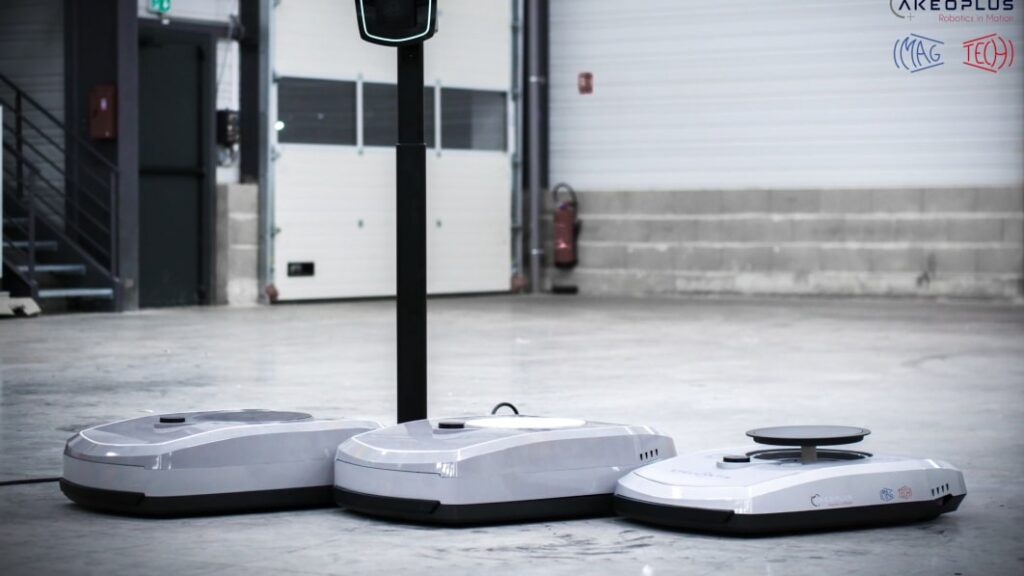Ram debuts wireless inductive charging robot

Electric vehicle ownership offers numerous benefits over cars with internal combustion engines, but in most cases, the charging experience isn’t one of them. Beyond the time it takes to charge, which can extend to many hours using a household outlet, shuffling around in the trunk to find a charging cable in the dark or bad weather is no fun. Ram showed off its debut electric truck at CES this year, and to go with it, the automaker brought an inductive charging robot. Though it sounds like sci-fi, this is a real thing, and it’ll be here in the next two years.
Yes, a real robot, although we’re not talking about a flashy humanoid machine. Ram’s charger looks more like a Roomba than Robocop, but its design is intentionally funky. Inductive charging, whether with a smartphone or EV, requires near-perfect alignment between the charger and the thing needing a charge. A slim rolling robot solves that problem and can make charging in a crowded parking lot or garage much easier since it can’t be blocked like traditional EV chargers.
Ram CEO Mike Koval told Green Car Reports that the brand’s customers are as concerned with the charging experience as they are with range. Stellantis is one of very few automakers without an EV on sale, but that will change when the Ram 1500 Revolution and new electric Jeep models land in 2024. As Green Car Reports pointed out, Stellantis made the leap from no EVs on sale to developing a crazy advanced inductive charging robot, which is more than noteworthy on its own.
The automaker worked with EFI Automotive to develop the component, which it says took five years to flesh out – as fleshy as a robot can get, anyway. Though we’re calling it wireless charging, there is a cable powering the robot, and the wireless portion is the “connection” between the vehicle and the charger.
We don’t know how fast the inductive charger can juice up an EV, but EFI said the robot could reach 97% efficiency because it makes contact with the vehicle instead of leaving a gap. The bot has a 32.8-foot cable and positions itself using artificial intelligence. Once in its place, the robot’s charging pad raises to make contact with the vehicle.
EFI’s demo at CES featured a 7-kW charger, and the company said its system could extend EV battery life by 15 percent. Production will start in 2025 alongside Ram’s extended-range Revolution pickup.
Related video:



